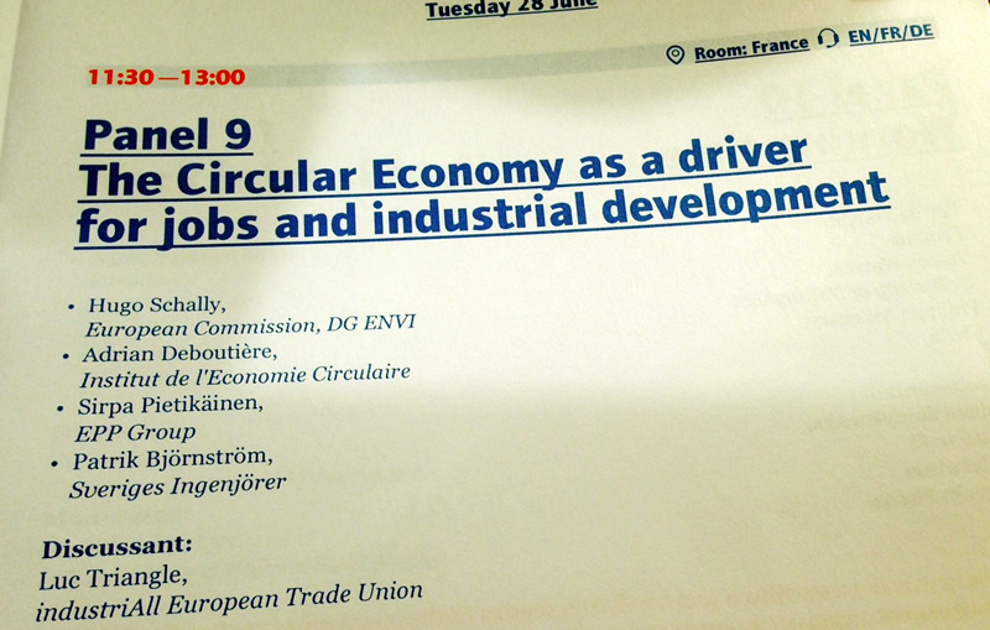The panel on the Circular Economy was moderated by Luc Triangle, General Secretary of industriAll Europe, and gathered representatives from different fields. Panellists debated on how to mainstream Circular Economy concepts, i.e. how to move the operations of maintenance, repair, upgrade and recycling from the margins to the centre of the system.
Patrik Bjönström illustrated with concrete examples, drawn from Swedish cases, that the Circular Economy is already a reality in wood processing, steel production and recycling of electronic waste. It is based on technology, innovation and investment. When made early, an investment in the Circular Economy can enable a company to become a world leader.
Adrian Deboutière shared the convergent results of numerous studies at national and European levels on the expected potential for job creation of the Circular Economy. More precisely, he identified potential jobs in the energy transition, in re-manufacturing, repair, and leasing business models. For France, the figures total ca. 450 000 new jobs; at EU level ca. 2.5 million.
Hugo-Maria Schally explained the rationale behind the Circular Economy Package published in December 2015, which includes elements on production, consumption, waste management, the market for “secondary” raw materials (i.e. for materials recovered from waste) and innovation.
Laurent Zibell presented industriAll Europe's proposal on an industrialised Circular Economy, where its operations (maintenance, repair, upgrade, recycling) are performed efficiently, for high-quality output and at a low cost, because they make use of industrial processes.
View 'Shaping the new world of work' Storify
In the ensuing discussion with the audience, the main issue appeared to be the mainstreaming of the Circular Economy concepts (long-life products, easy maintenance, repair, upgrade and recycling) into the existing business models. Some companies implement them profitably, mainly in Business-to-Business (B2B) relationships. The challenge ahead lies when selling to final consumers, who have less expertise in assessing the longevity and quality of a product, and are price-driven. The introduction of Eco-design requirements, where longevity, maintainability, repairability and upgradability are embedded in the product at the design stage, was identified as an essential measure to be taken. It is also a set of requirements with which European industries can gain a competitive advantage, and thus recover market share and jobs.
Read industriAll Europe's Policy Brief on “An industrialised Circular Economy"
